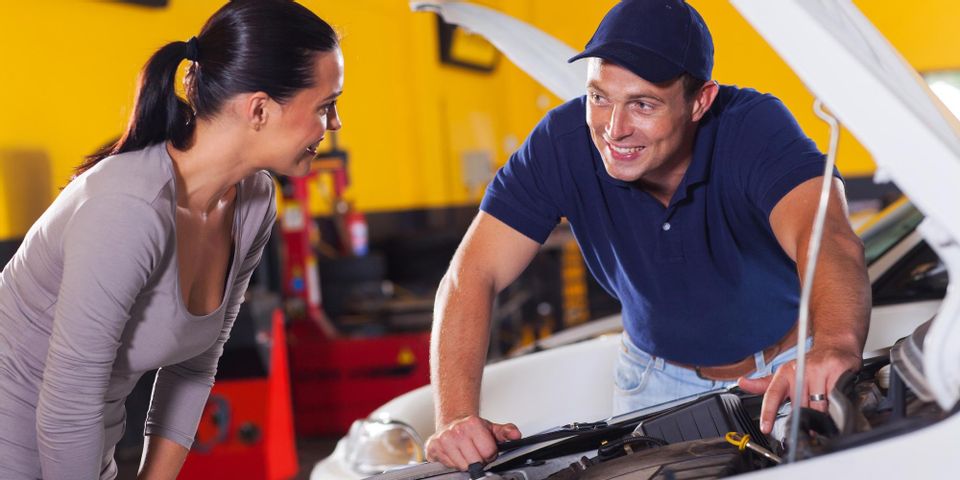
Because cars are such an integral part of daily life, it can be easy to forget that they are sophisticated pieces of machinery and technology. This fact becomes apparent, however, when there is any type of issue with the vehicle's smooth and dependable operation. The following guide will help you better understand your vehicle, so you can bring your car to the mechanic with confidence.
Answers to Common Questions for Mechanics
What should be part of my routine auto maintenance?
Routine maintenance ensures your vehicle serves you well for years to come and helps prevent problems before they start. Every 3,000 to 7,000 miles, the oil and oil filter should be replaced; transmission fluid, coolant, power steering fluid, and windshield washer fluid levels should be checked; and wipers, tires, and lights should be tested. Replace the air filter every 15,000 miles. Every 20,000 miles, inspect the battery. Replace the fuel filter every 25,000 miles.
What is the difference between a gas and a diesel engine?
 Both are internal combustion engines in which fuel interacts with air to produce a controlled explosion. The explosion creates the energy needed to power the vehicle. In a gas engine, fuel is mixed with air, and the explosion is then ignited by sparks from the spark plugs. In a diesel engine, the air is compressed first, and then the fuel is injected, which ignites the explosion.
Both are internal combustion engines in which fuel interacts with air to produce a controlled explosion. The explosion creates the energy needed to power the vehicle. In a gas engine, fuel is mixed with air, and the explosion is then ignited by sparks from the spark plugs. In a diesel engine, the air is compressed first, and then the fuel is injected, which ignites the explosion.
Another difference is fuel efficiency. Diesel has a higher energy content than gasoline, which means that not as much fuel is needed to power the engine. But diesel engines produce less horsepower than gas engines, so they aren’t as well-suited to vehicles like sporty convertibles or race cars.
Why does my car rattle when I accelerate?
Most often, rattling while accelerating is a sign of a timing belt issue. The timing belt synchronizes various parts of the engine to make sure the necessary valves open and close at the right times. Over time, the belt can wear out and produce a clicking or rattling sound.
What does it mean when a mechanic is licensed and insured?
Having a license means that a mechanic carries the necessary licensure and registrations to conduct an auto repair business in your area.
Insurance is an indicator that they have important protections in place when it comes to safeguarding their property and employees, as well as your vehicle. With a licensed and insured mechanic, you will have the peace of mind that comes with hiring a professional.
When you need a licensed and insured mechanic in the Brooklyn, NY, area, contact Puma's Auto Care. For over 17 years, they have been providing routine maintenance and auto repair services. From car tune-ups to transmission overhauls, from oil changes to diesel engine repair, they are a one-stop source for all your car care needs. Call (718) 272-6306 or visit them online for more information on their services.
About the Business
Have a question? Ask the experts!
Send your question

